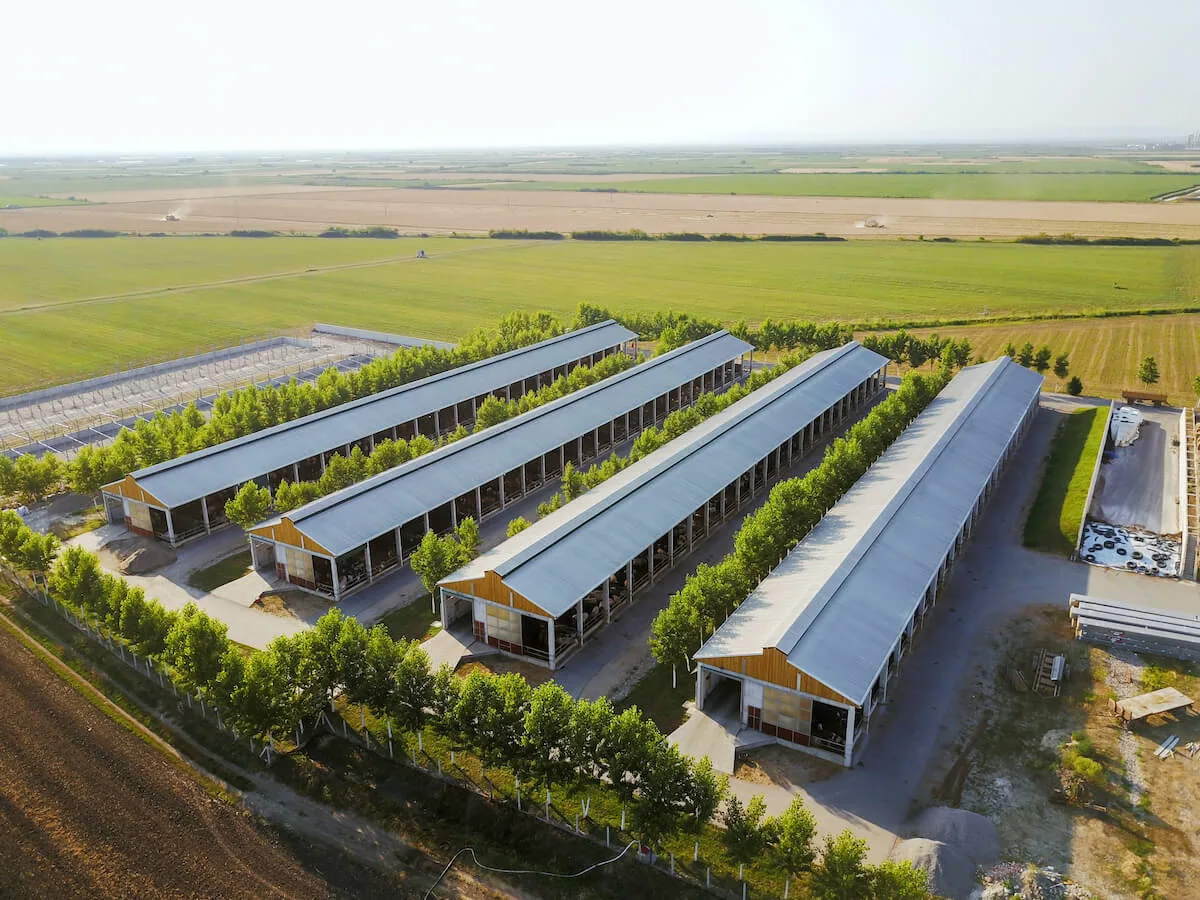
#image_title
Last minute pull due to language technicality, not environmental concern
When a bill giving vast new powers to large farm operators was pulled at the last moment in the State Senate, it was not only because of rising criticism of the proposal but because a major backer noticed language that could unintentionally limit farm size, the organization’s president said.
Cindy Leitner, president of the Wisconsin Dairy Alliance, said she was advised by attorneys that the use of the word “or” instead of “and” in one portion of the proposed bill could have allowed zoning regulations that would have prevented farms from growing larger, even as some farmers say such flexibility is needed to attract new people to the profession and keep others in business.
The Dairy Alliance promotes concentrated animal feeding operations, or CAFOs, which are comprised of 1,000 or more animal units.
“We received a lot of calls from members who said they were concerned about their ability to grow their farms,” Leitner said.
Senate Majority Leader Scott Fitzgerald, R-Juneau, pulled the bill from the floor on Feb. 19, just nine days after it had been introduced and fast-tracked for apparent approval, referring it back to the Senate Committee on Organization. The legislation, Senate Bill 808, previously had been approved by the Senate Committee on Agriculture, Revenue and Financial Institutions on a 5-4 party-line vote.
The bill, authored by Sen. Howard Marklein, R-Spring Green, and Rep. Travis Tranel, R-Cuba City, proposed that large-scale agricultural producers would control oversight of big farms. It would have transferred responsibility for overseeing large farms — designated as those with 500 or more animals — from local town and county governments to the state Department of Agriculture, Trade and Consumer Protection.
DATCP would not have been able to pass new rules without approval of a new nine-member Livestock Siting Technical Review Board that would have regulated large farms along with the agency. Five of the board’s nine board members would have been chosen by large agricultural entities, a concern to bill opponents.
The bill’s Republican supporters said it was intended to make the farm siting process more fair and efficient. Changes to siting rules are needed to speed up the permitting process, said Debi Towns, senior director of government relations for Wisconsin Farm Bureau Federation, which backed the proposed legislation. In some instances, she said, farmers have waited for more than a year for the permit process to be completed.
While opponents of the bill said they’re glad it failed, the lack of new legislation leaves communities at risk of seeing a growing number of loosely regulated factory farms. They said the bill would have given large agriculture entities too much control over expansion of large-scale farms, and existing siting rules must be revisited because they don’t do enough to protect the environment and small farmers.
Kim Dupre criticized the process used to craft the bill, saying it occurred too quickly to allow for enough public input.
“We knew nothing about this until the last minute,” said Dupre, a member of Emerald Clean Water for All, a northern Wisconsin group concerned about clean drinking water in rural areas. “If they want to do this legislation right, they need to have everyone at the table.”
Leitner said public hearings about the topic –though not the bill itself– were held throughout Wisconsin and offered residents a chance to offer their opinions on the matter. But she acknowledged the bill may have been pushed through too rapidly to allow for enough input.
The legislation was worked up after proposed revisions of large farm siting rules were dropped by the state Department of Agriculture, Trade and Consumer Protection. The regulations changes upset Republican senators, who voted in November against confirming the department’s secretary, Brad Pfaff, essentially firing him in an unprecedented move of political retribution against a governor’s cabinet choice.
Leitner said she was concerned when she learned DATCP staff didn’t believe they could adequately handle the large-farm permitting process in a timely manner. County and town governments said they wanted the state to handle those duties because they lacked the resources to do so, and those crafting the bill did not engage DATCP soon enough to ensure they could handle the process, she said.
The state Legislature approved siting regulations for large agriculture operations in 2006. However, only one-third of Wisconsin’s 72 counties, and just 8 percent of the state’s towns, have adopted them.
“Maybe it did happen too fast,” Leitner said when asked about criticism the bill was rushed through too quickly. “Sometimes, when you’re trying to get something done quickly, you don’t see as big of a picture as you need to.”
Towns said she hopes an agreement can be worked out that addresses the needs of a variety of farmers and organizations. The bill was intended to help not only CAFOs but mid-size farmers, too, Towns said.
“It’s important to us that there is a pathway for everybody,” she said. “We felt this bill did that.”
Ramona Moody disagrees. She has lived on a small farm with her husband five miles south of Grantsburg in Burnett County for the past three decades. Moody and other small farmers said they’re happy the Senate pulled the bill, which she called “dangerous to our industry and our state.” But she wonders what alterations, if any, might be made to current siting rules to better protect the environment and small farms.
“What is going to happen next with these big farm regulations?” Moody asked. “Changes need to be made, because the status quo isn’t good enough.”
Leitner said she believes a reworked agreement regulating large farms in Wisconsin is still attainable, but not during the current legislative session. The Assembly held its last scheduled vote on Thursday, and the Senate is scheduled to meet once more, in March, before adjourning for the year.
“We tried really hard to make this work before the end of this (legislative) session,” she said. “We’ve just run out of time.”

Opinion: Many to thank in fair maps victory for Wisconsinites
On February 19, 2024, Governor Tony Evers signed into law new and fair state legislative maps, bringing hope for an end to over a decade of...

Opinion: Empowering educators: A call for negotiation rights in Wisconsin
This week marks “Public Schools Week,” highlighting the dedication of teachers, paras, custodians, secretaries and others who collaborate with...

Op-ed: Trump’s journey from hosting The Apprentice to being the biggest loser
Leading up to the 2016 election, Donald Trump crafted an image of himself as a successful businessman and a winner. But in reality, Trump has a long...

Not just abortion: IVF ruling next phase in the right’s war on reproductive freedom
Nearly two years after the US Supreme Court overturned Roe v. Wade, another court is using that ruling to go after one of the anti-abortion right’s...




